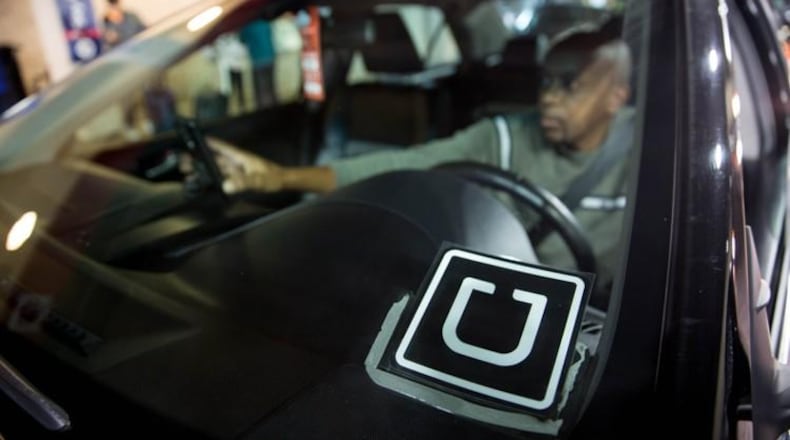Ride-hailing customers in Atlanta will begin paying one of the highest sales taxes in the country Wednesday, thanks in part to a legislative shutdown brought about by the coronavirus outbreak.
Earlier this year the General Assembly passed legislation raising sales tax collections from customers of internet- and app-based businesses, including Uber, Lyft and Airbnb. A separate bill that would impose a 50-cent fee on ride-hailing, taxi and limousine rides is still pending in the General Assembly.
The fee would be lower than the sales tax for many trips — especially in Atlanta, where the sales tax is 8.9%. But with the legislative session on hold indefinitely amid the pandemic, Uber and Lyft customers will begin paying the sales tax Wednesday.
MORE: A map of coronavirus cases in Georgia
MORE: Real-time stats and the latest news on the coronavirus outbreak
With much of the region stuck at home amid the pandemic, that may not affect many people now. But it will mean more expensive trips for Uber and Lyft customers until the issue is resolved.
For years the ride-hailing companies have denied they are required to pay sales taxes under Georgia law. The state Department of Revenue disagrees, and Uber has disputed a $22.1 million tax bill in court.
This year lawmakers have sought to resolve the issue. First, they passed House Bill 276, which deals with companies that use websites or apps to sell goods or services. It would require those companies to begin collecting and remitting sales taxes when it goes into effect Wednesday.
Ride-hailing companies endorsed another approach — the 50-cent fee included in House Bill 105. The bill also would charge 25 cents per shared ride.
The fee would generally cost less. For example, a customer would pay $1.80 in sales tax on an Uber trip from Atlantic Station to Hartsfield-Jackson International Airport. Under HB 105, the customer would pay a 50-cent fee.
The Senate approved HB 105 several weeks ago. But the House amended the bill to dedicate the revenue from the ride-hailing fee — estimated at $30 million to $40 million a year — to mass transit programs.
Sen. Steve Gooch, R-Dahlonega, helped negotiate the House language. And he thinks the revised bill stands a good chance of passing the Senate.
But until the General Assembly reconvenes, that can’t happen. And customers will pay the sales tax until lawmakers can finish their work.
“I think we’re in a pretty good posture right now,” Gooch said. “The only thing hurting us is time.”
Uber spokeswoman Evangeline George expressed cautious optimism the issue would eventually be resolved.
“While sales tax will begin applying to rides on April 1, we are advocating for a resolution when the Legislature returns with the passage and signing of HB 105,” she said. “The safety and well-being of Georgians is rightfully the top priority for the state right now.”
About the Author
Keep Reading
The Latest
Featured



